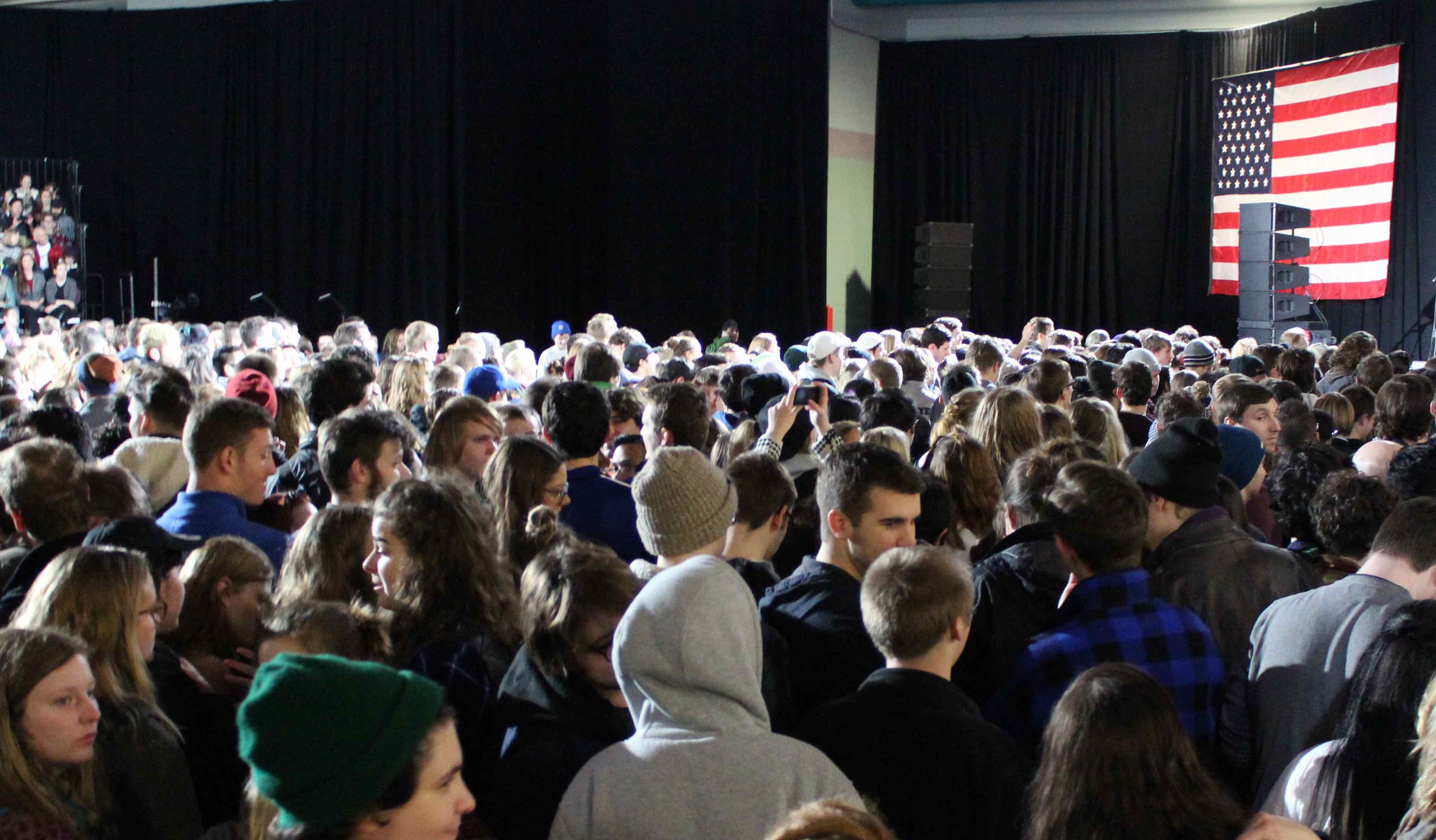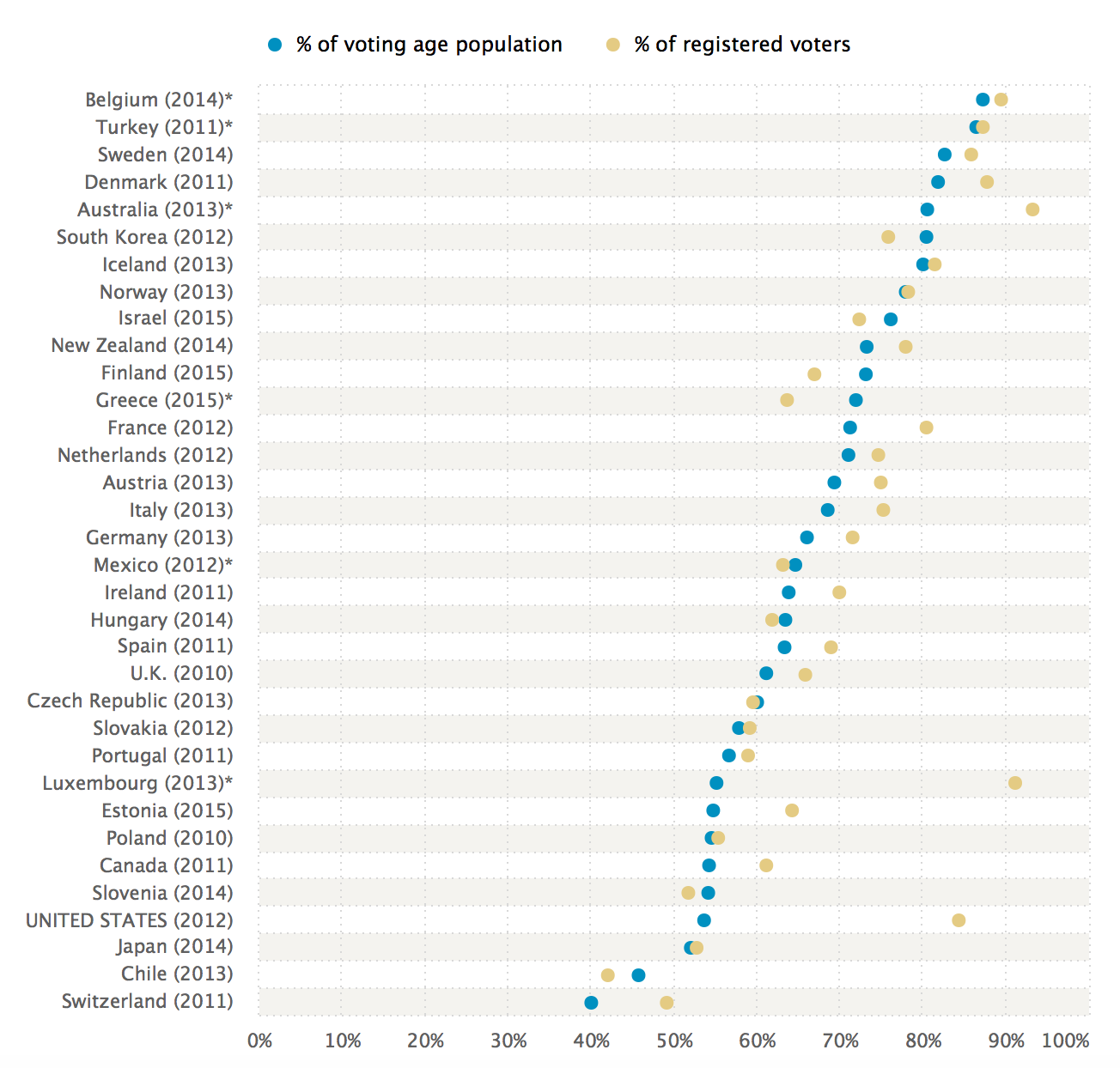

America historically has claimed to be a very strong democracy on the domestic and global levels. However, a recent trend might be threatening this ideal. America’s voter turnout has steadily declined since the 1940s and 50s, especially when compared to other advanced democracies. During 2012, the United States had a voter turnout of 53.4 percent of the voting age population, ranking very low compared to the top three countries, with Sweden at 82.6 percent, Turkey at 86.4 percent and Belgium at 87.2 percent, according to the Pew Research Center. When you look closer, the top three countries have compulsory voting laws, which can impact voter turnout, but other advanced democracies without compulsory voting laws, such as the United Kingdom and Canada, also have higher voter turnouts than the United States. In fact, out of the 34 countries surveyed in this study — only six of which have compulsory voting laws — the United States is ranked No. 31 in voter turnout.

Harvey J. Tucker, a political scientist from Texas A&M University, said voter turnout matters because elections are where decisions are made in modern democracies, and if there continues to be a lack of voter turnout, the votes will only represent a small sample of the overall population.
While voting is not the only important thing for a democracy to thrive, it is necessary for it to continue. The reason low voter turnout is so devastating to democracy is the people are not accurately represented — therefore, the country continues to function based on a small group of people’s opinions. This means the people who always vote make the decisions, even if those decisions do not benefit the country as a whole. This can lead to elected politicians who only have major campaign donors, such as corporations or wealthy citizens, on their minds, and pass policies that match the goals of those major donors.
One of the reasons voter turnout is low in the United States is we require citizens to register. Many people do not have the means to register, such as transportation or a valid form of identification, or do not want to go through the trouble of the registration process. Now, I am not saying registration is bad. It does have benefits, such as limiting voter fraud. However, it is one reason we see a lower voter turnout than other countries. Another reason is that we vote during the work week — while companies are required to let people leave to go vote, some people do not feel it is worth their time to leave and come back.
If we continue to let low voter turnout persist without trying to get more people involved, then this democracy — the democracy we praise ourselves for — will cease to exist. But there are things we can do to prevent this. By realizing low voter turnout can lead to a decrease in our democratic ideals, people can understand their impact and become more interested in fixing these problems.
One way to increase our voter turnout is to increase citizens’ interest in politics. When people feel more connected to their politicians and the laws they pass, they are more likely to show their support or disapproval. This burden of engaging in the political process falls heavily on citizens — people will have to read about candidates and not just blindly believe the words candidates spout and promise. Also, while it is true one individual vote will not change an election — a reason cited by many people choosing not to vote — if everyone believes their vote will not have an impact, then the masses will fail to make their voices heard. I think one way we can fix this problem — and the lack of interest in politics in general — is to find a way to show people they should care.
This editorial originally appeared in the Jan. 28 issue of the Index.
